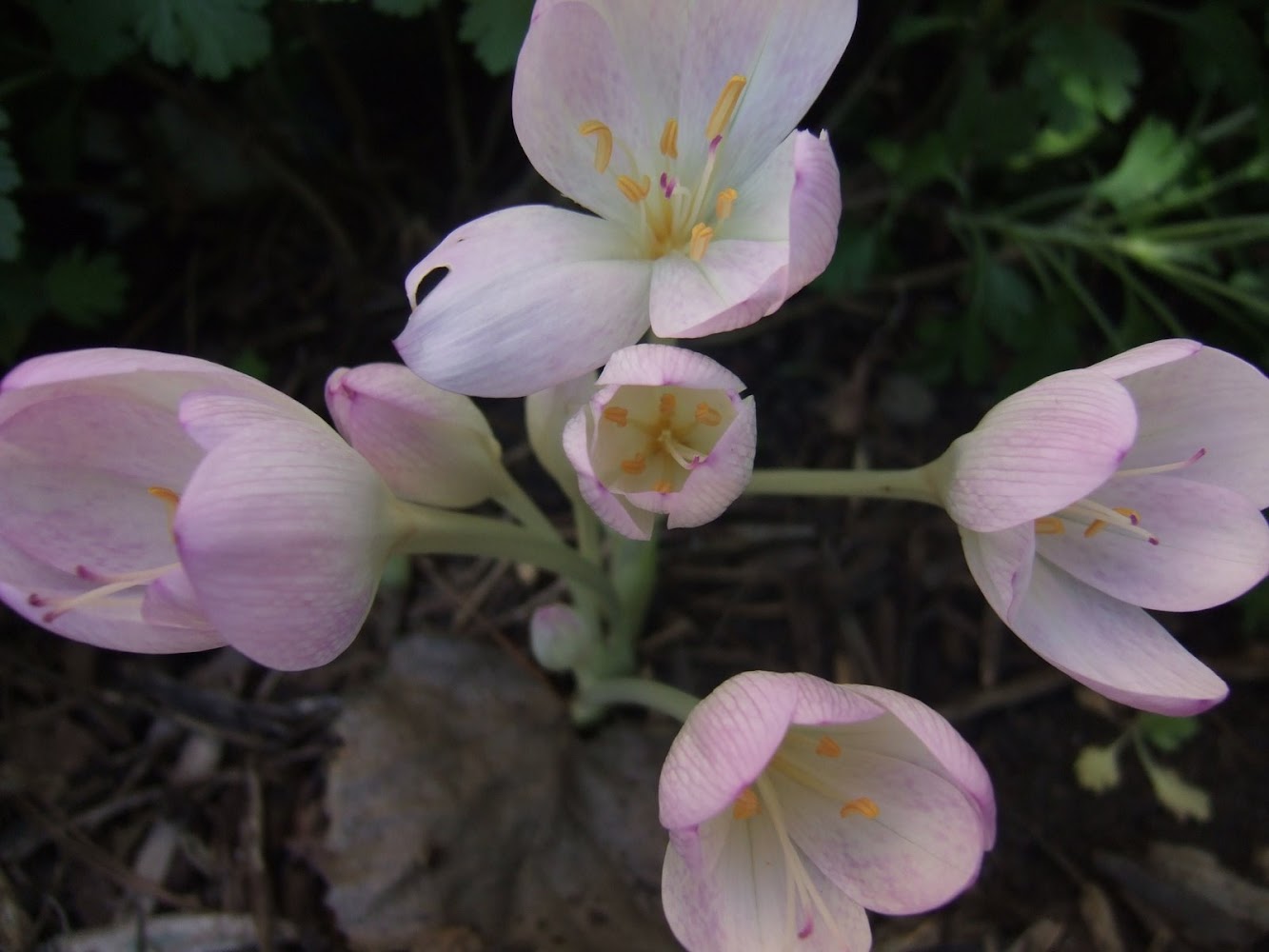
This is Colchicum 'The Giant,' popping up for its annual bloom. There used to be another one, but the nasty mum viciously attacked and killed it. Every year I intend to divide the Colchicum, and every year I get thwarted. This year the August deluge prevented me from getting to it. I should just buy another Colchicum, but the time for getting Fall-blooming bulbs rolls around, and I just can't get motivated. This bulb has hung in there, blooming reliably every year in late Summer. If only the same were true of the Naked Ladies (Lycoris squamigera), not to be confused with the BareNaked Ladies. I just can't get them to bloom, no matter where in the garden I try them.

I'm pushing the Zone envelope here with this variegated lavender, Lavandula angustifolia 'Silver Edge.' It is listed as hardy to Zone 6. I bought it last Summer at a big box store to use as an annual in a container. At the end of the season last year, I planted it against the wall on the East side of the house, in the middle of a slope. I mulched it after the ground froze and it survived! Of course it hasn't bloomed, that would be asking too much. But I don't mind; I like it for the sensory experience of running my fingers through it and inhaling the scent of lavender. Supposedly, lavender is a calming fragrance. I guess I should visit the plant more often.
Egret at the pond!

The pond is not in my yard, it is beyond the fence, on a homeowner's association's property. (I would never want to belong to any homeowner's association that would have someone like me as a member.) I can still enjoy the views of the pond and the wildlife it attracts. In Spring and early Summer it hosts frogs, singing away into the night. Ducks are at the pond whenever it is not frozen over. I could do without the visits from the ex-Canadian Geese, though. (The government should reclassify the aquatic pigeons, as they are no longer migratory. They've made their homes year-round at suburban retention ponds, golf courses, and office parks.) All summer the pond is the breeding ground for jewel-tone dragonflies. But the visitors I most enjoy seeing are those occasional ones from the egrets and the Great Blue Herons. I can sit for hours and watch these wading birds poised like plastic lawn ornaments until they dart a head into the water and withdraw a fish. Their first appearance of the year heralds Spring and their disappearance means Winter will soon be upon us.